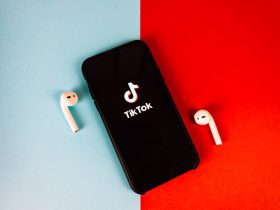In the food service sector, bakers turned to social media to sell directly to consumers
Just two months into the pandemic, in May 2020, Instagram announced Instagram Shop, which allowed businesses to sell directly through their Instagram accounts. The feature unveiled just as many businesses were already benefitting from the platform’s massive user base and highly responsive algorithm to drive sales. In the food service sector, as layoffs ravaged the industry, chefs and bakers turned to the social media platform to sell direct-to-consumer (D2C).
As lockdown increased, people turned to their phones more, and they had more time to look on the internet, they’re working from home a lot more, they’re learning from home a lot more, Pandemic Donuts Co-owner Michael Milton told PYMNTS in a recent interview. So as a bakery, what can we do to fit into that lifestyle better? And for us, that’s been delivery.
Pandemic Donuts began when Milton and his partner were laid off from their food service jobs, and Instagram commerce’s low entry barrier proved essential to establishing a following for their bakery.
As Food & Wine pointed out, out-of-work food service professionals around the country have been doing the same, taking advantage of the easily accessible platform to advertise microbakeries and build out a customer base.
For instance, in April 2020, former server Kirstyn Shaw launched The Very Best Cookie, a Los Angeles pick-up and delivery microbakery whose gooey chocolate-chip cookies established a dedicated following with consumers. The brand’s enthusiastic voice built a strong connection with at-home consumers scrolling through social media in search of uplifting content.
Meanwhile, in Northern California, pandemic-native Instagram bakery Basuku is selling Japanese-inspired Basque Cheesecakes to its 12,000 followers. Since starting on Instagram, the bakery has been selling cheesecakes to distributors throughout Northern California, according to the San Francisco Chronicle. The transition from selling via social media to selling to businesses has been vital to keeping the bakery alive. As Baker Charles Chen told the newspaper: Without thinking it through, I was just taking orders, saying yes. I found myself baking six to seven days a week. Like Pandemic Donuts, Basuku also launched via Instagram, but then developed into a more traditional model.
In New York, the social-media-centric microbakery scene has exploded in the last year.
Eater highlighted some of the more popular offerings, including Brooklyn’s Vietnamese bakery Bạn Bè, which was developed after baker Doris Ho-Kane’s plans to open a bakery in Brooklyn’s Cobble Hill were interrupted by the pandemic. Soon, the waitlist grew to hundreds of customers.
As the vaccine rolls out and as consumers return to their out-and-about lives, feeling more comfortable in brick-and-mortar bakeries, it remains to be seen what will become of the microbakeries that have stuck to the original model. Still, the past year has shown how effective social media can be in launching a bakery brand, especially when that brand has a clear voice and a strong visual identity.









